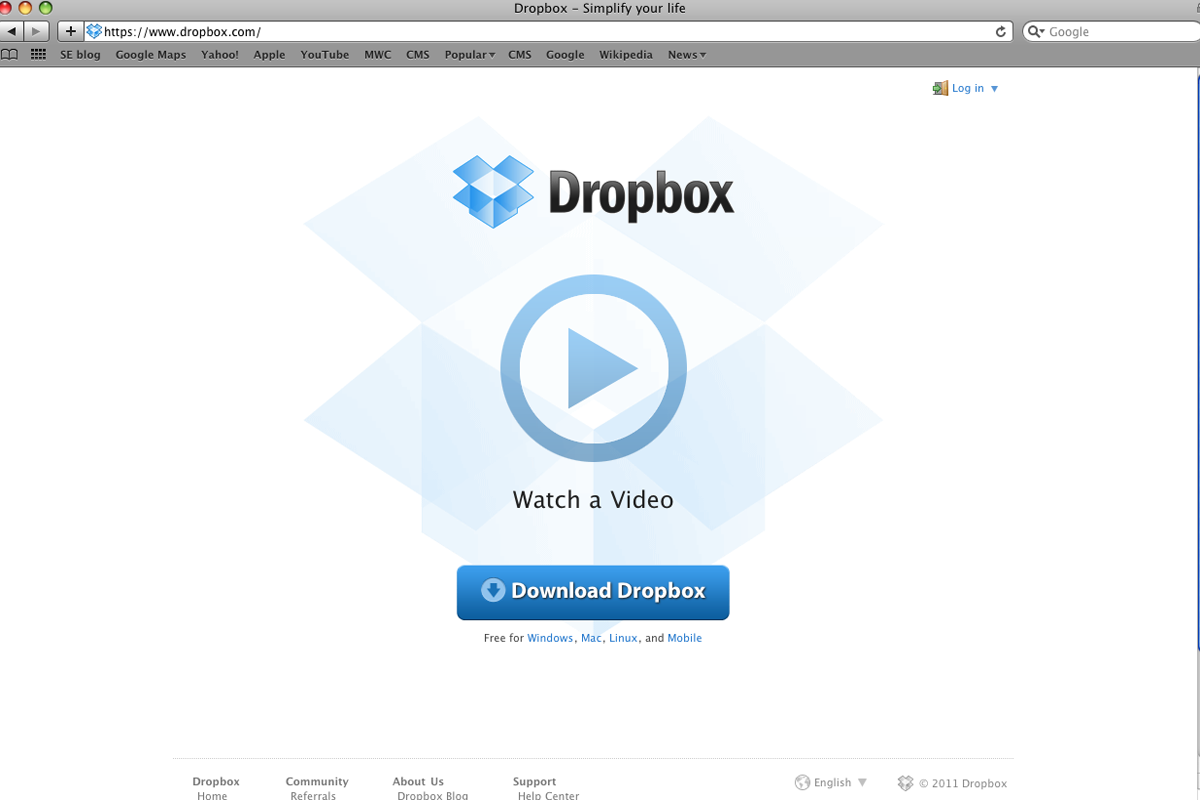Dropbox faces backlash over T&Cs
The cloud storage firm tries to explain its way out of trouble after it causes uproar with changes to its copyright rules.


Dropbox has updated its terms and conditions after customers were enraged by the clause detailing ownership of their data.
On Friday the popular cloud storage start-up announced changes to its policies, claiming it had rights to the data stored on its service.
The original section read: "You grant us (and those we work with to provide the Services) worldwide, non-exclusive, royalty-free, sublicenseable rights to use, copy, distribute, prepare derivative works (such as translations or format conversions) of, perform, or publicly display that stuff to the extent reasonably necessary for the Service."
This announcement led to user uproar, with angry parties claiming Dropbox had no right to their data and ownership should remain in the hands of the uploader.
An angry customer, going by the name Words Pics Ak, posted a comment on Dropbox's blog, saying: "As a pro photographer, my reservations about using Dropbox are NOT lessened whenever I read that I must grant permission to you to display my copyright protected commercial work for ANY reason, administrative or otherwise."
"No thinking pro will countenance that form of blanket release."
Dropbox has now revisited its terms again, being forced to update its blog twice in order to try and calm the storm surrounding its policy.
Sign up today and you will receive a free copy of our Future Focus 2025 report - the leading guidance on AI, cybersecurity and other IT challenges as per 700+ senior executives
In its final attempt to explain, Drew Houston and Arash Ferdowsi, founders of Dropbox, wrote: "We want to be 100 per cent clear that you own what you put in your Dropbox. We don't own your stuff. And the license you give us is really limited. It only allows us to provide the service to you. Nothing else."
Is this enough to put users' minds at rest? One analyst doesn't think so.
Speaking to IT Pro's sister title Cloud Pro, Clive Longbottom, founder of Quocrica, said companies running free services believe they can mess around with the policies as much as they like and this could affect both consumers and business alike.
"Even as a consumer, I'd be worried that Dropbox is essentially saying that it "owns" any documents that I drop through its service," he said. "As a business person, I'd be horrified everything in those documents could be intellectual property and it belongs to me at an IP and a copyright level."
Longbottom claimed any business user should look into a service where a service level agreement (SLA) can be put in place to protect them, rather than fall victim to re-jigged T&Cs.
"Yes, it will mean paying for it, but managing an organisation's IP has to be seen as a cost, not something to do along "best efforts" capabilities," he added.
But he also warned companies to read the fine print before signing any deal.
"With any commercial system, you have to look at the T&Cs just as much make sure that they cannot be altered without agreement, otherwise [the provider] will just wait until you've paid your subscription (preferably 20 years in advance) and then change the T&Cs to say "Hah it all belongs to us!" he said.
Jennifer Scott is a former freelance journalist and currently political reporter for Sky News. She has a varied writing history, having started her career at Dennis Publishing, working in various roles across its business technology titles, including ITPro. Jennifer has specialised in a number of areas over the years and has produced a wealth of content for ITPro, focusing largely on data storage, networking, cloud computing, and telecommunications.
Most recently Jennifer has turned her skills to the political sphere and broadcast journalism, where she has worked for the BBC as a political reporter, before moving to Sky News.
-
 Will autonomous robotics leap forward in 2026?
Will autonomous robotics leap forward in 2026?In-depth Connectivity and cost benefits remain barriers, despite breakthroughs in physical AI
-
 AWS and NTT Data team up to drive legacy IT modernization in Europe
AWS and NTT Data team up to drive legacy IT modernization in EuropeNews Partnership between AWS and NTT DATA aims to boost AWS European Sovereign Cloud capabilities
